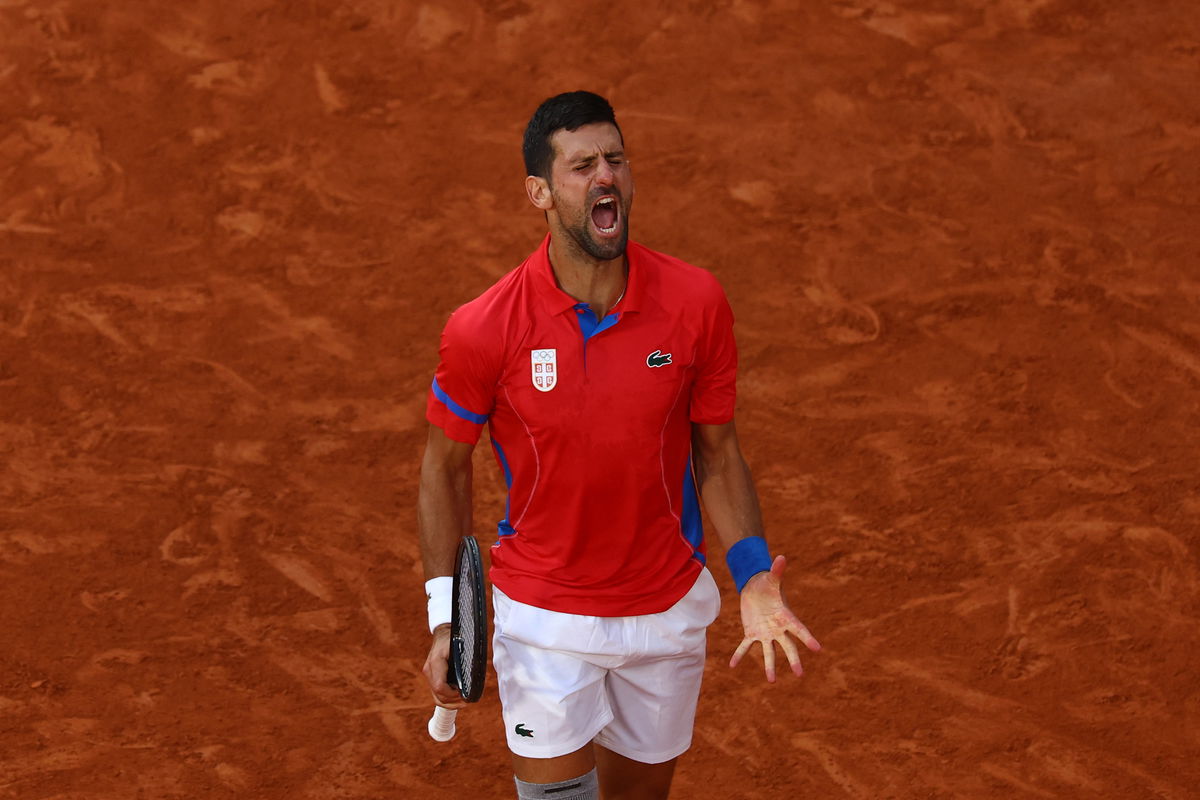
Reuters
Paris 2024 Olympics – Tennis – Men’s Singles semifinals – Roland-Garros Stadium, Paris, France – August 02, 2024. Novak Djokovic of Serbia reacts during his match against Lorenzo Musetti of Italy. REUTERS/Edgar Su

Reuters
Paris 2024 Olympics – Tennis – Men’s Singles semifinals – Roland-Garros Stadium, Paris, France – August 02, 2024. Novak Djokovic of Serbia reacts during his match against Lorenzo Musetti of Italy. REUTERS/Edgar Su
Behind the aura of invincibility lies a story of vulnerability and self-discovery in every champion’s life! For Novak Djokovic, the journey to greatness was not a linear ascent. He might be the 24 Grand Slam champion now, but there was a time when he was 16 or 17 years old and surviving, alone, on his own in the tennis arena, with the hope of becoming the world No. 1. He eventually did in 2011, but little did he know that it would be a winding path marked by twists and turns!
Watch What’s Trending Now!
After five years of grinding on the ATP Tour, the then 20-year-old player from Serbia got his big break by winning his first Grand Slam at the 2008 Australian Open. It opened many gateways for Djokovic, who capitalized on all of them to conquer his dreams. Be it winning his first year-end championship or clinching a bronze medal at the Olympics in his debut performance, Djokovic seemed to master it all. More success followed in the next year.
He navigated his way through ten final events in one season, winning five of them. For his amazing track record (78-19) that year, he even earned the title of “Ironman.” But even after performing his best, the Serbinator could not climb to the No. 1 rank but stayed at No. 3 at the end of the year. In 2009, he boldly decided to play fewer matches than the previous year. Sadly, it didn’t work out well for him, and he struggled to defend his previous year’s titles.
ADVERTISEMENT
Djokovic entered the French Open seeded third, where he lost to Jürgen Melzer in five sets, marking the only time he lost a match at a major after leading two sets to love. It broke the former World No. 1 to tears. Speaking on this to Tennis Majors, his biographer, Mark Hodgkinson, author of the recently released book, ‘Searching for Novak’, said,
“He lost to a young Melzer and it was a defeat that hit him very hard, from two sets up. Talking to people around him, he went through a very, very dark time. He was upset. He was in tears. And I think he questioned whether he actually wants to carry on.”
View this post on Instagram
ADVERTISEMENT
But the 37-year-old player revived himself in 2011 and now has three French Open titles and a record of staying at the top for 428 weeks. But it was not easy for him to overcome that particular defeat in Paris and stay focused on his career. Instead, he had second thoughts about continuing his career as a tennis player. Thankfully, he waved away those thoughts later on and decided to move ahead. Referring to that, Hodgkinson further added,
“But I suppose it’s kind of normal as an athlete to have those kinds of moments where you question yourself and you sort of say, is this something I want to carry on doing?” Hodgkinson also mentioned how, for most of his career, he had to tackle two of the biggest tennis players of all time, Roger Federer and Rafael Nadal. Although he managed to have a lead over them later on in his career, it was anything but easy to make his place in the “Big 3” (Nadal, Federer, and Djokovic) of tennis.
ADVERTISEMENT
Further referring to how he stayed motivated during those “dark times,” and regained his momentum to make it to the top in 2011 while also winning three more Grand Slams, Djokovic’s biographer said, “So I think it was a moment where he thought, actually: ‘what? So what do I want to accomplish and what can I accomplish?’ And it kind of resets. And since then, you know, he then went on to have an incredible year in 2011. And so I think the fact he survived at that moment is a great lesson for all his supporters and people who follow tennis as well.”
Later on, Djokovic also shared his thoughts about his “not”-so-“happy” moments from that period of time.
ADVERTISEMENT
Here’s how Novak Djokovic changed his fate in 2011!
“I had won in Australia in 2008 and was No. 3 in the world, but I was not happy,” Djokovic said in a past interview. Why would he be? Djokovic still had to prove himself against his rivals. He knew he “could do more,” but in the three years following his 2008 grand slam victory, he had to retire mid-match from various events. However, Nadal and Federer did not have any opportunity to shine in the tennis arena. Djokovic lost all his motivation and even decided to quit after his Roland Garros defeat in 2010.
In his own words, “I cried when I left. I had a moment in my life, my career, when everything happened in a fusion in which I really did not see a reason to keep on playing, I wanted to quit tennis.” But his approach changed afterward when he beat then defending champion Nadal at the Wimbledon final in 2011. “I always believed I have the quality to beat those two guys; I always believed I have the quality to win majors, Grand Slams. And that was the only way I could be here in this position, you know,” he said in the same year.
Top Stories
Roger Federer Draws Criticism from Swiss Government Chief for Tourism Boom in Country
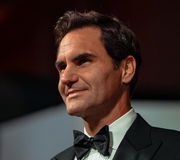
Stefanos Tsitsipas Considered Quitting Tennis After Major Personal Setback
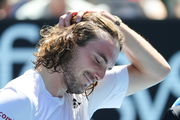
Carlos Alcaraz Gets Harsh Reality Check After Father’s Reported Role in Juan Carlos Ferrero Split
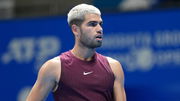
Naomi Osaka Reveals How Daughter Influenced Her First Loss of 2026
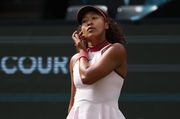
45-Year-Old Venus Williams Receives 2026 Australian Open Wildcard Entry
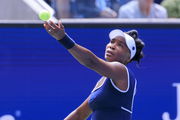
With renewed confidence and hard work, it was only a matter of time before he proved his prowess on-court. Djokovic is now in his first final match at the 2024 Summer Olympics and is set to face Carlos Alcaraz, who swept past him in Wimbledon this year. Will Djoker create history by clinching his first gold at the Games, or will we see a repeat of this year’s Grass grand slam finals?
ADVERTISEMENT
ADVERTISEMENT
ADVERTISEMENT
ADVERTISEMENT

